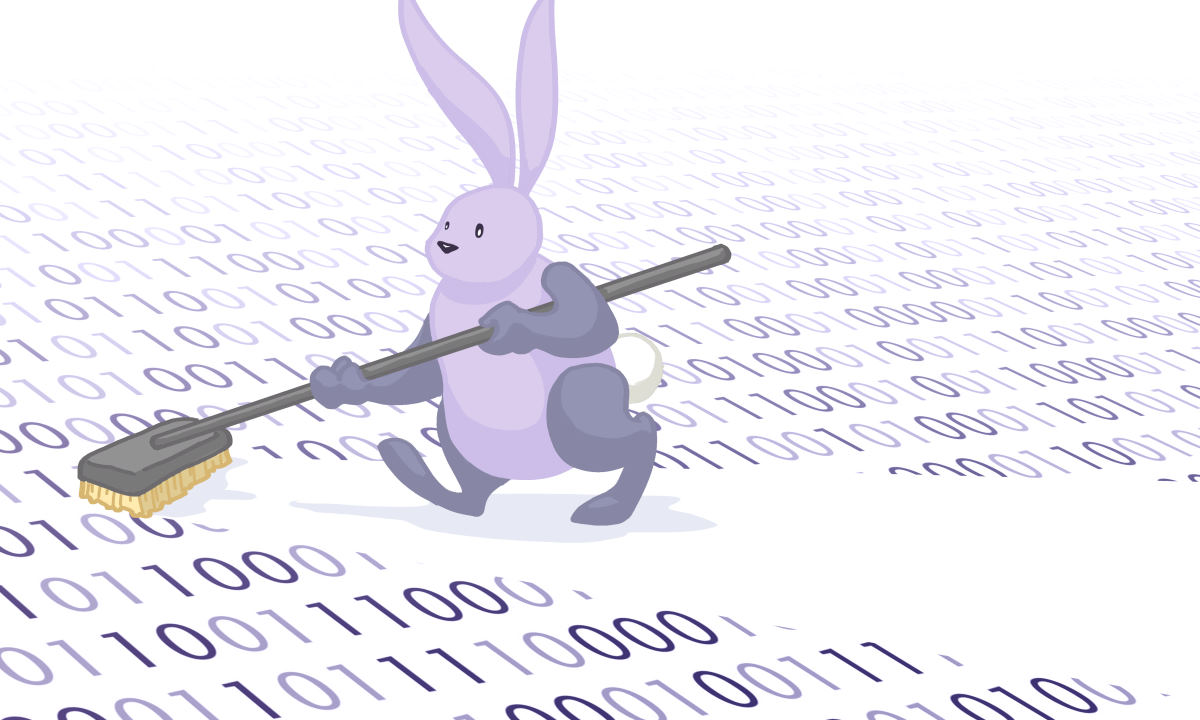
How to Completely Clear Your Web Browsing History
Mar 18, 2022Originally published Jan 27, 2021; Updated March 18, 2022
When we use the Internet, we leave a digital trail floating around behind us. Nearly every website you visit and every search you make can be logged by both the websites, and by our own web browsers and Internet service providers (ISPs).
If you don't take action to prevent this, your digital trail can be exposed—no small matter, considering how personal the contents are in your own cell phone. Fortunately, there are actions we can take to remove some of our digital footprints. For the highest level of digital safety, your best bet is a privacy solution called a virtual private network, or VPN.
A VPN takes ordinary web traffic and routes it through a separate, encrypted server. This makes it harder for ISPs to see the final destination of their users' web activity while hiding people's home IP address from the websites they visit. As a result, the data that is so commonly used to track and record people's online activity is never visible in the first place. Orchid's VPN solution takes Internet privacy to the next level with blockchain technology. Its decentralized marketplace lets any type of customer access the leading, most secure, and highest-rated VPN providers in the world with no monthly fees or subscriptions.
Even though a VPN will protect your Internet activity from being viewed by your ISP and other third-party onlookers, you may still want to take a few extra precautions to protect your privacy online. Clearing your web browsing history is one of the simplest ways to delete your Internet "paper trail" on your own machine. Here's how.
Deleting the History That's stored Locally
The process of deleting your browsing history is slightly different depending on which browser you use, but it's generally a simple option accessible via the "History" tab on your browser's main drop-down menu. Below are links to several quick guides on clearing history for some of the most popular web browsers:
If you don't want to have to go through the entire process of deleting your history every once in a while, you can also configure your browser not to record any of your activities. Some browsers also have a "clear on close" option. Alternatively, you can use private browsing or "incognito" mode, which also prevents the web browser from storing your history in the first place.
Will Deleting Browsing History Eliminate Your Digital Footprint Completely?
It's important to understand what clearing the browser history does and does not accomplish. It eliminates the risk that a roommate or coworker will stumble across evidence of private or embarrassing online activity when using the same device. URL fields will not auto populate the addresses of recently visited sites. For this reason, clearing your browser history is a good way to shield your web activity from people you share a home or workspace with.

But it does nothing to remove the digital footprints we leave on the web itself. When we browse the Internet, our ISPs have complete visibility into our activities—they can and do log the sites we view and the searches we enter. Whether or not our browser histories have been cleared, our ISPs can see everything we do online.
We're visible at the other end of our Internet journeys as well. When we go online, we are identified by a unique Internet protocol (IP) address—which the websites we visit can see and record. The IP addresses of visitors are retained by most websites and can be used by authorities to identify people's online activities.
Once your IP address is in the hands of third-party websites, there is no way to "clear" it. Since Internet users don't own the data they generate, once it's logged, it's fully in the public domain (or the hands of corporations). The key, then, is to prevent the data from being shared in the first place. VPNs, therefore, are a great way to start.
A VPN takes ordinary web traffic and routes it though a separate, encrypted server. This makes it hard for ISPs to see the destination of their users' web activity, while hiding people's real identities from the websites they visit. As a result, the data that is so commonly used to track and record people's online activity is never visible in the first place. But there is a problem with this approach: users must trust the VPNs themselves, who maintain full visibility into their online activity, not to log or share that data.
When it comes to determining whether or not a VPN can be trusted, it's important to do some research. Check third-party reviews of the VPNs you're considering, and as a rule of thumb, do not rely on "free" VPNs. These providers may not charge you any money, but they are almost certainly finding other ways to monetize your use of their services.
Removing Third Parties' Ability to Track You Based on Your Browsing History
In addition to logging IP addresses, most websites—though not all—also track users with cookies. Cookies are often used to predict the behavior of an Internet user based on their past actions. They are the reason we see ads in our social media news feeds for items we recently searched for on another website. As cookies accumulate, they produce a detailed digital identity for each of us, and this identity follows us wherever we go online.
Fortunately, like deleting browser histories, clearing cookies is relatively straightforward. It's a simple command that can be reached through most browsers' drop-down menus. In Chrome, this is the same menu that's used to clear your browsing history. But be sure to clear your cookies on every browser and every device you use—actions taken in Chrome, for example, won't have any effect in Safari.
It's also important to remember that clearing your cookies doesn't protect you going forward—while it gives you a clean slate, cookies will start accumulating again as soon as you resume online activity. It's best to clear cookies often—but for the strongest online privacy, additional steps are needed.
The Safest Option is to Use an Internet Privacy Solution
For the strongest online privacy, the best approach is to use an Internet privacy tool. VPNs are a good place to start, as is Tor. The latter, in particular, is one of the best ways to avoid the type of "fingerprinting" that occurs when cookies accumulate.
Orchid's goal is to make Internet privacy affordable and accessible to people everywhere. To achieve this objective, Orchid combines the strength of leading VPNs with innovative, blockchain-based technology to offer protections to its users. With Orchid, people can string together multiple "hops" between providers, providing extra protection even if a single VPN on the route logs data, leaks, or is hacked.
Orchid is pay-as-you-go, with no monthly commitments. And now, Orchid's VPN service supports payments on eight blockchains, offering users a wide range of payment options with lower fees. Users who self-custody any of the eight native digital assets on their respective chains now can move their funds into Orchid accounts and pay for service using the Orchid app.
And it's easy to get started: anyone can use an ordinary credit and just $1 to pay for service in only a few seconds.
Download the Orchid app today.
If you enjoyed this blog, subscribe here for privacy news, commentary, and product updates from Orchid.



